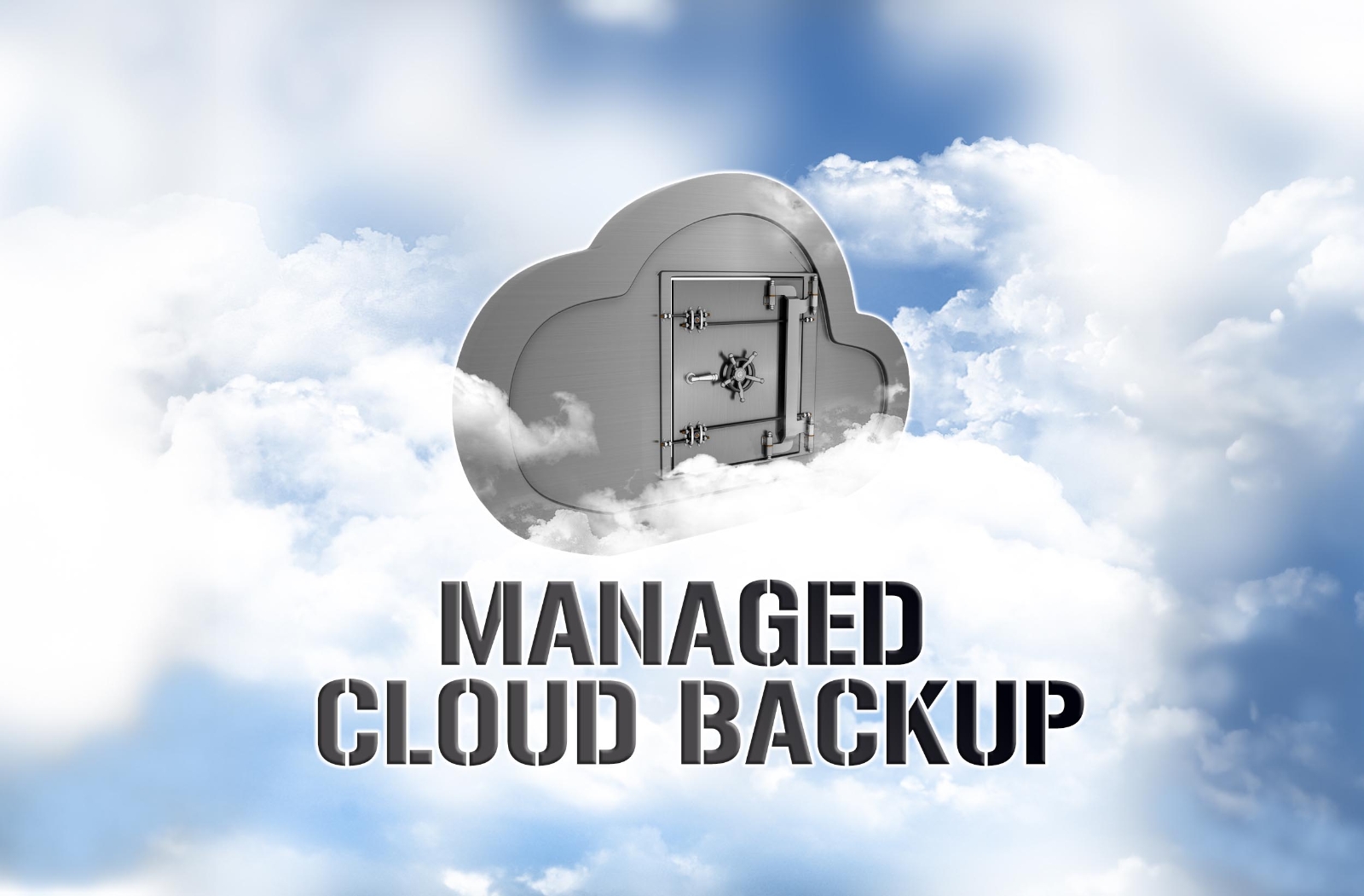A Beginners Guide to Managed Cloud Backup Services

In an era where data forms the backbone of modern businesses, the importance of robust data management strategies cannot be overstated. The increasing reliance that most organizations contend with on digital assets increases their attack surface and vulnerability of data, especially to loss, corruption, or ransomware. This poses a significant threat to business continuity. In this landscape, managed cloud backup services guarantee reliability and efficiency, offering businesses a proactive approach to safeguarding and restoring their critical information.
We understand that it might be tough to contend with the jargon and technicality involved in something as critical as backing up your data. This article delves into the realm of cloud backup services, listing their advantages and compelling use cases that will help secure your business.
As businesses grapple with the task of securing their digital assets, this exploration aims to shed light on the key components, benefits, and considerations associated with cloud backup services. From automated backups and continuous monitoring to the seamless recovery of data in the face of adversity, these services are revolutionizing the way organizations approach data protection.
Advantages of Cloud Backup Services
Data Accessibility and Anytime-Anywhere Access:
Cloud backup services provide the flexibility to access your data from any location with an internet connection. This is especially valuable for users who need to retrieve or restore data while on the go or in different geographic locations. Business owners who grapple with managing regional or international operations should prioritise backing up to the Cloud.
Scalability for Expanding Businesses:
Cloud backup services (and solutions) can scale easily based on your storage needs. Whether you have a small amount of data or large volumes, you can adjust your storage requirements with most cloud providers, paying only for the resources you use.
Cost-Effective Storage:
Cloud storage eliminates the need for businesses to invest in and maintain their own physical infrastructure for data storage. This can result in cost savings as organizations pay only for the storage space they use, without the need for upfront hardware expenses.
Data Redundancy and Durability:
Cloud providers often implement data redundancy across multiple servers and locations. This redundancy refers to the practice of storing data in two or more places within a database or storage system. This enhances data durability, ensuring that your information is protected even in the event of hardware failures or other unforeseen incidents.
Security Measures:
Leading cloud backup services prioritize cybersecurity and implement robust measures such as encryption, access controls, and authentication protocols to safeguard your data during transfer and storage. In the case of ransomware attacks and exploits, this manifests in an additional layer of security to recover and restore your files.
Versioning and File History:
Many cloud backup services include versioning and file history features. This allows users to restore previous versions of files or recover data from specific points in time, providing extra protection against accidental deletions or file corruption.
Disaster Recovery:
The crux and cornerstone of managed cloud backup services. Said services play a crucial role in disaster recovery strategies. In the event of a data loss incident, users can quickly recover their data from the cloud, minimizing downtime and business disruptions.

Free Up Local Resources:
Offloading data to the cloud frees up local storage resources, allowing devices to operate more efficiently. This is especially beneficial for individuals or organizations with limited local storage capacity.
Why Managed Cloud Backup Services?
In summary, cloud-based managed backup services offer a range of advantages, including accessibility, scalability, cost-effectiveness, and enhanced security. Having to manage the backup process is another set of problems that requires extensive effort and hours. Outsourcing this, however, is the perfect next step to close this service gap and fully indemnify your business. Here’s what the Managed part of Managed Cloud Backup Services gets you:
Automatic Software Updates and Maintenance:
Managed Cloud backup providers handle the maintenance and updates of the underlying infrastructure and software. This ensures that the service remains up to date with the latest security features and performance enhancements without requiring user intervention.
Compliance and Certification:
Managed cloud providers adhere to industry-specific compliance standards and obtain certifications. This is particularly important for businesses that need to comply with regulations such as GDPR, HIPAA, or other data protection and privacy requirements.
Automatic and Scheduled Backups:
Most importantly, cloud backup services often offer automated and scheduled backup options. This ensures that your data is regularly and consistently backed up without manual intervention, reducing the risk of data loss, without business owners having to lift a finger. A vital tool in your cybersecurity defence arsenal.
Managed Cloud Backup Services With Adventus
If you are lost and unsure where to start, Adventus is the one-stop solution provider that your business needs. For maximum convenience, you can streamline your backup solution with cloud-based managed backup services. Easy maintenance, low cost, highly customizable, and easily accessible anywhere, you can sit back and relax knowing your data is managed and maintained by the best team.
Futureproof your storage and backup solution with Adventus’ cloud-based managed backup services. and find out how you can start protecting your business by contacting Adventus’ team of experts now.
Recent Posts
- IT Outsourcing in Singapore
- Penetration Testing Explained: Think Like a Hacker, Stay Ahead of One
- Microsoft Teams Phone System: The Ultimate Solution for Modern Business Telephony
- Greener Prints, Greater Impact: Steps for Sustainable Printing at Work
- From Boardrooms to Classrooms: The Growing Role of Interactive Displays
- Microsoft 365 Phishing Threats Are Evolving – Are Your Defenses?
- Skype is Hanging Up — What’s Your Next Call?
- Last Call: Windows 10 End of Support Is Near — Secure Your Systems Now
- Business Broadband, Fibre, and You: A Complete Guide
- Cybersecurity Threats in 2024
- Best Outsource IT Support Services And Practices 2024
- Goodbye, Windows Server Update Services (WSUS): The IT Impacts of Microsoft’s Deprecation
- How To Get Cost-Efficient 24x7 IT Support in Singapore
- Countdown Begins: Windows 11 21H2 and 22H2 Support Ending in Less Than 2 Months
- CrowdStrike Cybersecurity Platform Faces Global Outage, Users Locked Out
- Latest Microsoft Outlook Security Update 2024 to Affect Accounts and Web Access
- Securing Your Systems: An Introduction to Patch Management
- 10 Great Tips for Selecting a Good Cybersecurity Company
- Tycoon 2FA: The Menacing MFA-Bypassing Phishing Threat Targeting Microsoft 365 and Gmail Accounts
- Fortinet Users Beware: New RCE Vulnerabilities Disclosed
- Ivanti Exploited: Third Zero-Day Vulnerability Uncovered (CVE-2024-21893)
- TeamViewer Exploited to Breach Vulnerable Networks and Deploy Ransomware
- Buying vs. Leasing vs. Renting A Copier / Printer in Singapore
- A Beginners Guide to Managed Cloud Backup Services
- Fortifying Your Digital Defence: The Importance of Multi-Factor Authentication
- 5 Advantages of Using Managed Backup Services
- New Phishing Method Discovered in Recent Cyber Attacks | Don’t Get Hooked!
- What Is IP Telephony, and How Can It Help Your Business?
- Zero Trust Network Access (ZTNA): What Is It and How It Transforms Your Network Security
- Embracing 24/7 Efficiency: Simplify Your Business with Future-Proof Cloud Print Solutions
- Cybersecurity Alert! Critical Vulnerabilities Found on Microsoft’s Outlook, Windows and Other Products
- 7 Factors to Consider When Outsourcing IT Support
- A Complete Guide to Door Access Control Systems
- Top 9 Password-Creating Tips That Will Change Your Life | Password Security
- Next Generation Firewall (NGFW) vs. Unified Threat Management (UTM) — Which is Best for You?
- Cloud PBX System: The Benefits of Using a Cloud Phone System for Business Communication
- Top 5 Benefits and Best Practices of Outsourcing IT Helpdesk Support
- Reducing Risks of Computer Virus Attacks in Hybrid Work Environments
- 3 Ways Your Company Can Benefit from Business Broadband
- Cybersecurity Threat: “Follina Vulnerability” Explained
- IP Phones vs. Analogue Phones
- On-site IT Support Services vs. Remote IT Support Services
- 5 Questions to Ask Yourself Before Creating A Ransomware Recovery Plan
- What To Look For When Choosing A Business Broadband
- 7 Cybersecurity Predictions for 2022
- Cybersecurity Threat: “Log4Shell Vulnerability” Explained
- What Is IT Support and What Does an IT Support Specialist Actually Do?
- Tips for Selecting a Good Door Access Control System
- Top 7 Reasons to Use Cloud Managed Backup Services
- A Complete Guide to Managed Cybersecurity Services
- Top 5 Financial Benefits of Managed IT Services
- The Different Types of Ransomware
- Ransomware Recovery in Singapore


